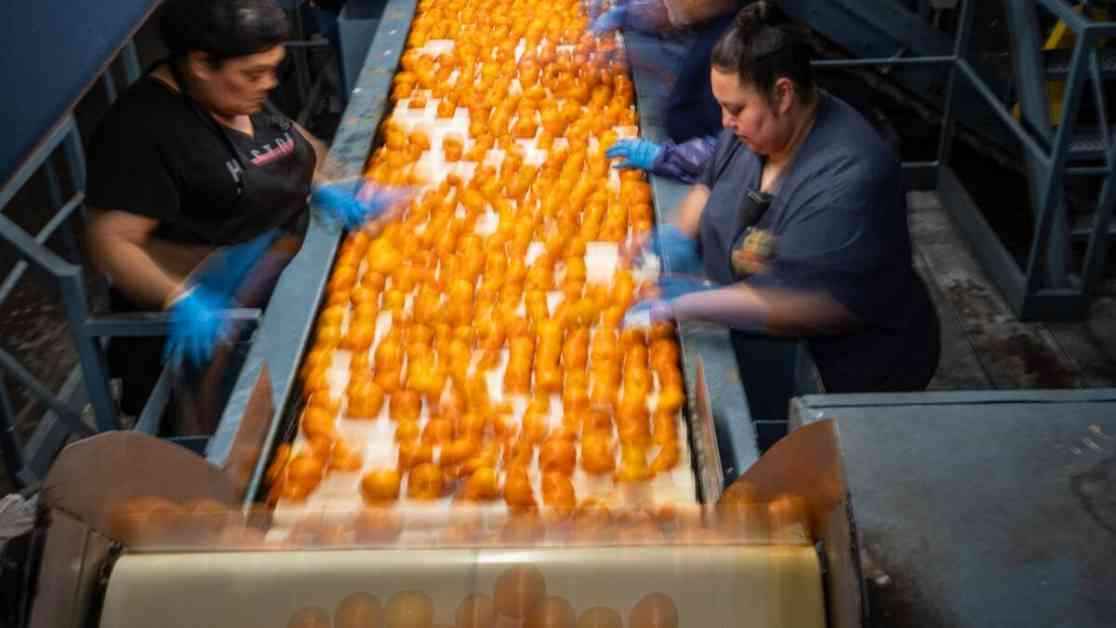California Farmers Navigate Economic Uncertainty Amid Trump’s Tariffs
In the heart of California’s agricultural industry, a sense of unease lingers as farmers grapple with the economic impact of President Trump’s tariffs. While the recent pause on some tariffs may have soothed financial markets, the repercussions are still keenly felt in the $59 billion agricultural sector of the Golden State.
Trump’s decision to maintain 10% blanket tariffs across countries while escalating levies on China and Canada has sent ripples of concern through California’s farmers. These retaliatory measures have hit key markets for California’s produce, such as almonds, pistachios, oranges, and dairy products, creating a cloud of uncertainty over the future.
The Human Stories Behind the Numbers
For Christine Gemperle, an almond farmer in Ceres, the prospect of ongoing trade tensions is daunting. As she tends to her 135-acre almond orchards with her brother, the fear of being caught in the crossfire of global trade wars looms large. Gemperle’s personal narrative sheds light on the human toll of these economic shifts, where livelihoods are at stake, and the future of small family farms hangs in the balance.
Bianca Kaprielian, a fourth-generation citrus farmer in Reedley, shares Gemperle’s concerns as she witnesses dwindling sales and uncertain futures. Navigating the complexities of international trade, Kaprielian reflects on the challenges faced by farming families as they grapple with shrinking profit margins, rising costs, and a sense of foreboding about what lies ahead.
Expert Insights and Industry Perspectives
Beyond the personal anecdotes of farmers like Gemperle and Kaprielian, experts in the agricultural sector are also sounding the alarm. Shannon Douglass, president of the California Farm Bureau Federation, emphasizes the risks faced by farmers in the current trade climate. Chronic labor shortages, inflation, and now retaliatory tariffs threaten to destabilize an already fragile industry, raising concerns about the long-term viability of California agriculture.
Karen Ross, secretary of the California Department of Food and Agriculture, echoes these sentiments, highlighting the importance of export markets for the state’s agricultural products. With key trade relationships shifting and fraying under the pressure of tariffs, the economic landscape for California farmers grows increasingly uncertain.
Looking Ahead with Hope and Resilience
As farmers like John Diener in Fresno County continue to navigate these turbulent waters, there remains a sense of cautious optimism. Diener’s decades-long experience in agriculture has taught him to weather storms of change, including policy shifts and market fluctuations. His resilience reflects the spirit of California’s farming community, where a deep-rooted commitment to the land and the crops they cultivate sustains them through uncertain times.
Amidst the chaos of tariffs and trade wars, California’s farmers stand united in their hope for better trade agreements and more stable trading opportunities. As they work tirelessly to keep their industry healthy and thriving, the lingering uncertainty serves as a reminder of the challenges they face. Yet, in the face of adversity, these farmers persevere, their fields a testament to resilience in the face of uncertainty.














